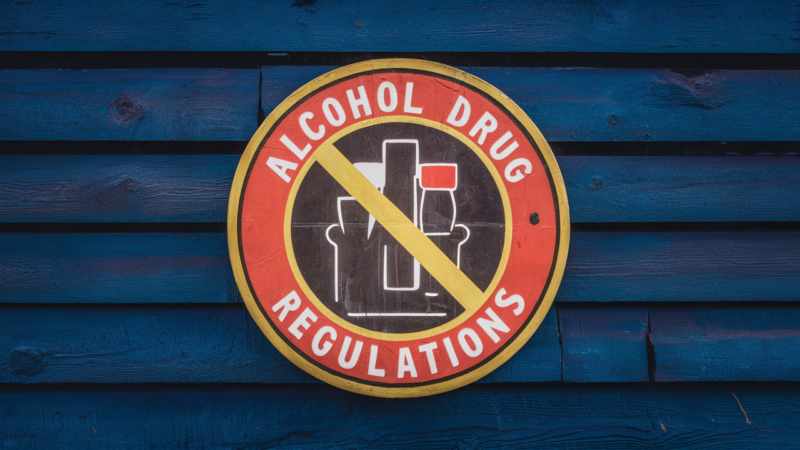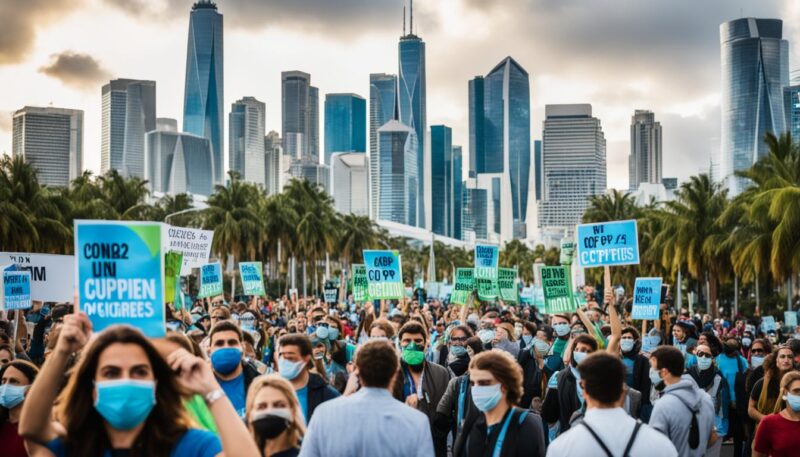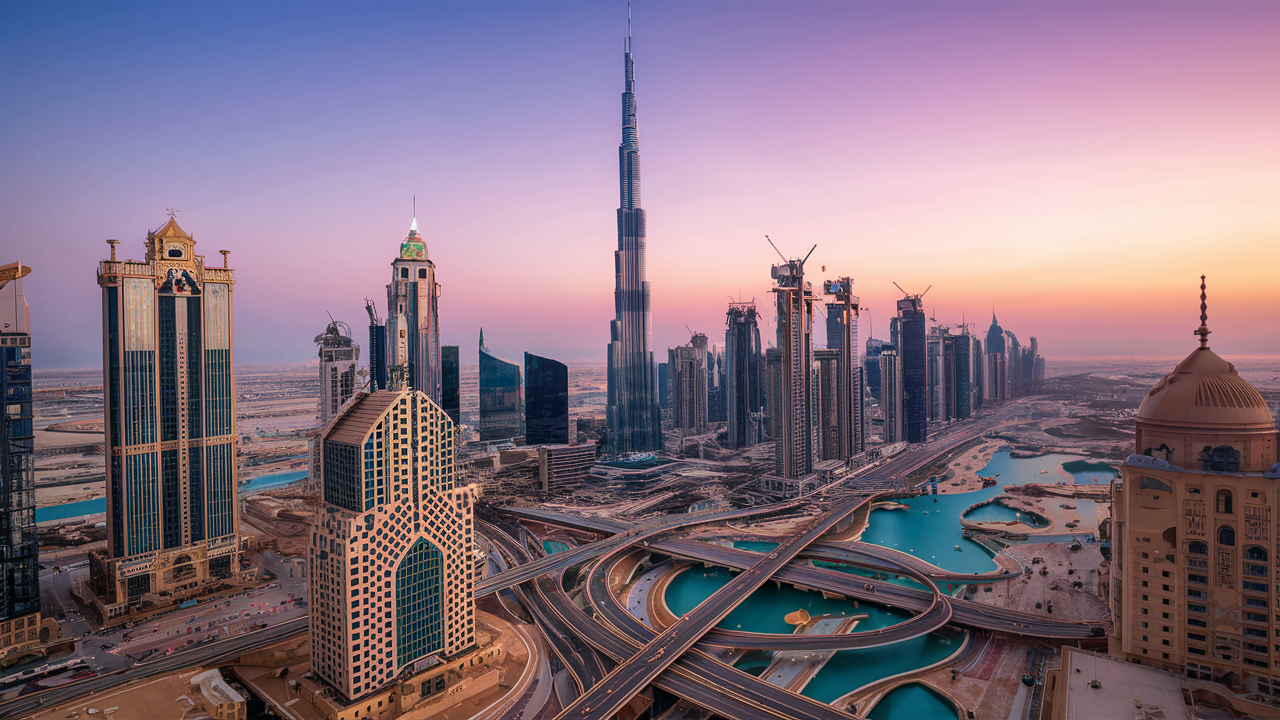Did you know that the United States Department of State has issued a travel advisory for the United Arab Emirates (UAE)? This advisory cautions U.S. citizens about the ongoing threat of missile or drone attacks and terrorism in the country. With the possibility of attacks affecting U.S. citizens and interests in the Gulf and Arabian Peninsula remaining a serious concern, it’s crucial for anyone planning to visit the UAE to stay informed and prepared.
As a frequent traveler to the UAE, I’ve always been struck by the country’s vibrant culture, stunning architecture, and welcoming people. However, the recent security challenges have made me rethink my approach to visiting this fascinating destination. It’s a sobering reminder that even the most beautiful and prosperous places can face complex threats in today’s global landscape.
The U.S. Department of State’s travel advisory highlights the ongoing threat from militant groups operating in Yemen, who have stated their intent to attack neighboring countries, including the UAE, using missiles and drones. The Federal Aviation Administration has also issued a notice to air missions due to the risks to civil aviation in the region. While the UAE generally provides a safe and secure environment for residents and visitors, the threat of terrorism remains, and attacks can happen with little or no warning, targeting tourist locations, transportation hubs, markets, and government facilities.
Key Takeaways
- The U.S. Department of State has issued a travel advisory for the United Arab Emirates (UAE) due to the ongoing threat of missile or drone attacks and terrorism.
- Militant groups in Yemen have stated their intent to attack neighboring countries, including the UAE, using missiles and drones.
- The Federal Aviation Administration has issued a notice to air missions due to risks to civil aviation in the region, including the UAE.
- While the UAE generally provides a safe and secure environment, the threat of terrorism remains, and attacks can happen with little or no warning.
- U.S. citizens traveling to the UAE should stay informed, be prepared to adjust their plans, and enroll in the Smart Traveler Enrollment Program (STEP).
Travel Safety and Security Concerns

According to the U.S. Department of State, the possibility of attacks affecting U.S. citizens and interests in the Gulf and Arabian Peninsula, including the UAE, remains an ongoing, serious concern. Militant groups operating in Yemen have stated an intent to attack neighboring countries, including the UAE, using missiles and drones. Missile and drone attacks in early 2022 targeted populated areas and civilian infrastructure in the UAE.
Terrorism and Missile Attack Risks
The Federal Aviation Administration has issued an advisory Notice to Air Missions (NOTAM) due to risks to civil aviation operating within the Persian Gulf and the Gulf of Oman region, including the UAE. Travelers should be aware of the FAA’s Prohibitions, Restrictions and Notices for more information on flight operations in the region.
Notices to Air Missions and Aviation Safety
Due to risks to civil aviation operating within the Persian Gulf and the Gulf of Oman region, including the United Arab Emirates, the Federal Aviation Administration (FAA) has issued an advisory Notice to Air Missions (NOTAM). U.S. citizens should consult the Federal Aviation Administration’s Prohibitions, Restrictions and Notices for more information on flight operations in the region.
Monitoring Local Media and Adjusting Plans
The U.S. Department of State advises U.S. citizens traveling to the UAE to monitor local media for breaking events and be prepared to adjust their plans accordingly. Enrolling in the Smart Traveler Enrollment Program (STEP) can help U.S. citizens receive travel alerts and make it easier for the government to locate them in an emergency.
Legal and Cultural Considerations
The United Arab Emirates has strict local laws that U.S. citizens must be aware of. Violating local laws, even unknowingly, can result in expulsion, arrest, or imprisonment. The UAE has independent judicial systems in each emirate, and legal procedures and penalties can vary throughout the country.
Some laws are also prosecutable in the United States, regardless of local law, such as crimes against minors abroad. The U.S. Embassy and consulate do not routinely notify U.S. citizens of arrests, so if arrested or detained, U.S. citizens should request that police or prison officials notify the U.S. Embassy or consulate immediately.
Criminal Penalties and Local Laws
Alcohol and Drug Regulations

Alcohol is sold only in very limited areas in the UAE, including certain restaurants and hotels. Public drunkenness and driving under the influence are considered very serious offenses, even if the individual’s blood alcohol content is low. Penalties may include jail sentences, fines, and lashings, especially for Muslims.
The possession and consumption of alcohol is prohibited in the emirate of Sharjah. The UAE also has strict anti-drug laws, with the death penalty for drug trafficking and lengthy prison sentences for possession of even trace amounts of illegal drugs, including in the bloodstream. Possession or consumption of marijuana, including products containing cannabidiol (CBD), are also illegal, as are poppy seeds.
Codes of Behavior and Dress
Public decency and morality laws in the UAE are much stricter than in the United States. Penalties may be imposed for public displays of affection or immodest dress. Sexual relations outside of marriage are illegal, and pregnancy outside of marriage can result in arrest and detention.
Individuals may also be arrested, fined, or deported for making rude gestures, swearing, touching others without permission, or making derogatory statements about the UAE, its royal families, or the local governments. Travelers should be mindful of cultural differences and aware that their actions, including clothing choices, may invite unwanted attention.
Financial Crimes and Debt

Crimes of financial fraud, such as passing bad checks, non-payment or late payment of bills, and credit card debt, are taken very seriously in the UAE and often result in imprisonment and/or fines. A personal check written as a guarantee for a debt may be submitted to a local bank for collection at any time, and if the account holder does not have sufficient funds, they may be charged with passing a bad check. Debtors can be held in prison until their debts are paid or an agreement is reached, and passports may be seized to guarantee that debtors settle their cases.
Photography and Drone Operation Restrictions
Taking photographs of UAE military facilities, sensitive civilian sites, airports, some beaches, or foreign diplomatic missions, including the U.S. Embassy or Consulate General, may result in arrest, detention, and/or prosecution by local authorities. It is also illegal to take photographs of other people without their consent. The flying of drones is prohibited in certain areas and may result in arrest and imprisonment if done without prior approval from local authorities.
Social Media and Online Conduct
The UAE has strict laws regarding the use of the internet and social media. Individuals have been arrested and criminally convicted for posting information on social media sites that local authorities determined was disturbing to the order of the UAE. Users of social media should be cautious about online posting of information that might be deemed to insult or challenge the local or national government.
It is also against the law to conduct any private fundraising activity online. The UAE National Media Council has rules for conducting business as a social media influencer in the UAE, and influencers must apply for trade and e-media licenses to promote brands on social media.
Terrorist Organizations List
On November 15, 2014, the UAE government announced a list of 85 groups it considers to be terrorist organizations. Individuals who are associated with groups on the UAE list could be detained at UAE borders, have their assets frozen, and/or be prosecuted for membership in a terrorist organization.
Religious Proselytizing
While individuals are free to worship as they choose in the UAE, and facilities are available for that purpose, religious proselytizing is not permitted. Persons violating this law, even unknowingly, may be imprisoned or deported.

United Arab Emirates Travel Advisory
Employment and Sponsorship
Although it is common for a local sponsor to hold an employee’s passport in the UAE, this is illegal under UAE employment laws. Many UAE sponsorship requirements and labor disputes can be avoided by clearly establishing all terms and conditions of employment or sponsorship in the labor contract at the beginning of any employment.
If an employee leaves their job without properly canceling the employment visa, the employer can file charges that can lead to imprisonment, fines, and/or deportation. U.S. citizens have also become involved in commercial or financial disputes that have prompted local firms or courts to take possession of the U.S. citizen’s passport, effectively preventing the individual from leaving the UAE.
Document Authentication Requirements
U.S. citizens intending to reside and work in the UAE are generally required by the UAE government to present authenticated personal documents, such as marriage and birth certificates, adoption and custody decrees, certificates of good behavior from police, and educational credentials. The authentication of U.S. documents is done completely in the United States, and determining the exact UAE document authentication requirements with one’s prospective employer is strongly recommended before arrival in the country.
LGBTQI+ Traveler Considerations
The UAE government does not accept passports with the “X” gender marker. This applies to travel to, in, or through the UAE. Although the U.S. Embassy and U.S. Consulate General are not aware of any recent arrests or prosecutions for consensual, same-sex conduct, LGBTQI+ travelers should be aware of the UAE’s laws and regulations regarding sexual orientation and gender identity.
COP28 Climate Change Conference in Dubai
The 2023 United Nations Climate Change Conference, known as COP28, will take place in Dubai, United Arab Emirates, from November 30 to December 12, 2023. U.S. citizens should be aware of logistical challenges due to the large number of anticipated attendees for the event, road closures, and increased law enforcement measures.
U.S. citizens traveling to Dubai during COP28 should remain vigilant and take important steps, such as enrolling in the Smart Traveler Enrollment Program (STEP) and reviewing the latest security messages and travel advisories for the UAE.
Visa and Entry Requirements for COP28 Participants
UN-registered participants in COP28 must obtain a special COP28 UAE visa before traveling, following the instructions provided. For non-participants traveling as tourists, no advance visa is usually required to enter the UAE.
Protest and Demonstration Regulations
According to the UAE government, protests and demonstrations during COP28 will be permitted only within designated areas at the conference site, and any such activity occurring elsewhere may be deemed unlawful by UAE authorities.

Conclusion
The United Arab Emirates is a popular tourist destination, but U.S. citizens should exercise increased caution due to the ongoing threat of missile or drone attacks and terrorism. U.S. travelers to the UAE must be aware of the country’s strict laws and cultural norms, which can result in severe penalties for even minor infractions. During the COP28 climate conference in Dubai, U.S. citizens should be prepared for logistical challenges and increased security measures.
By staying informed and following local laws and regulations, U.S. travelers can have a safe and enjoyable experience in the UAE. It is crucial for visitors to familiarize themselves with the UAE’s travel advisories, safety concerns, and cultural expectations to ensure a hassle-free and enriching journey. With a proper understanding of the UAE’s unique environment, U.S. citizens can fully immerse themselves in the country’s vibrant culture, stunning landscapes, and world-class attractions.
FAQ
What are the main security concerns for travelers to the United Arab Emirates?
The U.S. Department of State has issued a travel advisory for the UAE due to the ongoing threat of missile or drone attacks and terrorism in the country. Militant groups operating in Yemen have stated an intent to attack neighboring countries, including the UAE, using missiles and drones. Missile and drone attacks in early 2022 targeted populated areas and civilian infrastructure.
What advisories have been issued for aviation in the UAE?
The Federal Aviation Administration has issued an advisory Notice to Air Missions (NOTAM) due to risks to civil aviation operating within the Persian Gulf and the Gulf of Oman region, including the UAE.
What should U.S. citizens do to stay informed and prepared when traveling to the UAE?
U.S. citizens should monitor local media for breaking events and be prepared to adjust their plans accordingly. Enrolling in the Smart Traveler Enrollment Program (STEP) can help U.S. citizens receive travel alerts and make it easier for the government to locate them in an emergency.
What are some of the strict local laws and cultural norms that U.S. citizens should be aware of in the UAE?
The UAE has strict laws regarding alcohol, drugs, public decency and morality, financial crimes, photography, social media, and religious proselytizing. Violating these laws can result in severe penalties such as expulsion, arrest, or imprisonment.
What should U.S. citizens know about employment and sponsorship in the UAE?
It is illegal for an employer to hold an employee’s passport in the UAE. Many contractual or labor disputes can be avoided by clearly establishing all terms and conditions of employment or sponsorship in the labor contract. Leaving a job without properly canceling the employment visa can lead to charges, imprisonment, fines, and/or deportation.
What are the key considerations for U.S. citizens traveling to the UAE during the COP28 climate conference in Dubai?
U.S. citizens should be aware of logistical challenges due to the large number of anticipated attendees, road closures, and increased law enforcement measures. UN-registered COP28 participants must obtain a special COP28 UAE visa, while non-participants traveling as tourists usually do not require a visa in advance. Protests and demonstrations during COP28 will only be permitted within designated areas at the conference site.

